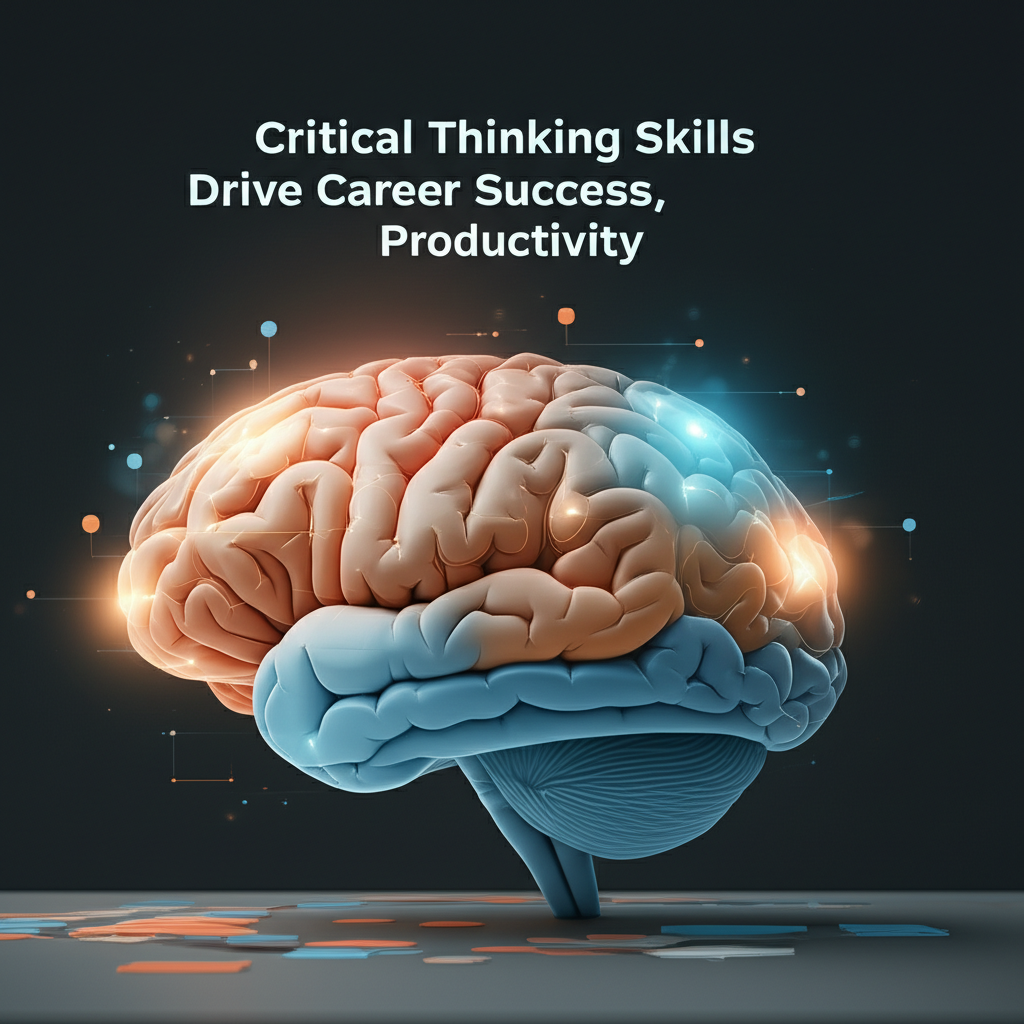Critical Thinking Skills Drive Career Success, Productivity

Critical Thinking: A Cornerstone of SuccessIn today's rapidly evolving world, the ability to think critically is no longer a luxury, but a necessity.
Background
From navigating complex business decisions to evaluating information online, strong critical thinking skills are paramount for success
This article examines the importance of critical analysis in boosting career prospects, increasing productivity, and fostering better decision-making.
We will explore the key components of critical thinking, provide actionable strategies for improving these skills, and highlight the benefits of incorporating critical analysis into everyday life
Critical thinking, at its core, is the ability to analyze information objectively and form reasoned judgments.
It involves evaluating evidence, identifying assumptions, and considering different perspectives before reaching a conclusion
This skill is vital in various aspects of life, from professional settings to personal relationships.
Why Critical Thinking MattersThe importance of critical thinking stems from its direct impact on decision-making and problem-solving
Individuals with strong critical thinking skills are better equipped to:Analyze Information: Discern credible sources from misinformation.
Identify Assumptions: Recognize underlying beliefs that influence thinking
Evaluate Arguments: Assess the validity and strength of different viewpoints. Solve Problems: Develop effective solutions by considering all angles.
In the workplace, these skills translate to increased efficiency, innovation, and better overall performance.
Employers consistently seek candidates who demonstrate strong critical thinking abilities, recognizing that these individuals are more likely to contribute positively to the organization
Critical thinking is the foundation of innovation. Without the ability to question assumptions and analyze data, we are limited in our ability to create new solutions and drive progress.
Here are several actionable strategies to improve your critical thinking abilities:Ask Questions: Constantly question assumptions and seek deeper understanding
Don't accept information at face value; instead, probe for evidence and reasoning.
Seek Diverse Perspectives: Engage with individuals who hold different viewpoints and actively listen to their perspectives
This can broaden your understanding and challenge your own biases. Practice Active Reading: Read actively by highlighting key arguments, taking notes, and summarizing the main points.
This will help you engage with the material and analyze it more effectively.
Solve Puzzles and Brain Teasers: Engaging in mentally stimulating activities, such as puzzles and brain teasers, can help sharpen your analytical skills and improve your problem-solving abilities
Take Online Courses: Numerous online courses offer structured training in critical thinking. These courses provide valuable tools and frameworks for developing these essential skills.
One effective technique is the “5 Whys” method, a problem-solving technique that involves repeatedly asking "Why. " to drill down to the root cause of a problem.
This can help you identify underlying issues and develop more effective solutions. The Impact of Critical Thinking on SuccessThe benefits of critical thinking extend far beyond the workplace.
Individuals who possess strong critical thinking skills are more likely to make informed decisions in all aspects of their lives, from financial planning to personal relationships
This leads to greater overall well-being and a higher likelihood of achieving personal and professional goals
For example, a study by the Foundation for Critical Thinking found that individuals with strong critical thinking skills are less likely to fall prey to misinformation and scams
They are better equipped to evaluate sources of information and identify potential biases, protecting themselves from financial and emotional harm
Furthermore, critical thinking fosters creativity and innovation.
By challenging assumptions and exploring different perspectives, individuals can generate new ideas and develop innovative solutions to complex problems
This is particularly valuable in fields such as science, technology, engineering, and mathematics (STEM), where innovation is essential for progress.
Looking AheadIn an increasingly complex and information-saturated world, critical thinking skills will become even more crucial for success
Individuals who can think critically will be better equipped to navigate challenges, seize opportunities, and contribute meaningfully to society.
Investing in the development of critical thinking skills is an investment in one's future and the future of the world
Moving forward, it is essential to prioritize critical thinking education in schools and workplaces.
By providing individuals with the tools and training they need to think critically, we can empower them to become more informed, engaged, and successful citizens
The ability to think critically is not just a skill; it's a mindset that empowers individuals to make better decisions, solve complex problems, and achieve greater success in all aspects of life
By embracing critical thinking, we can unlock our full potential and create a brighter future for ourselves and for generations to come
